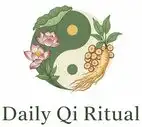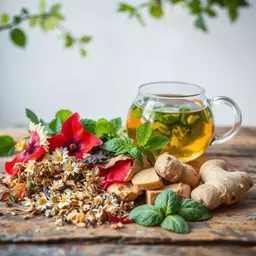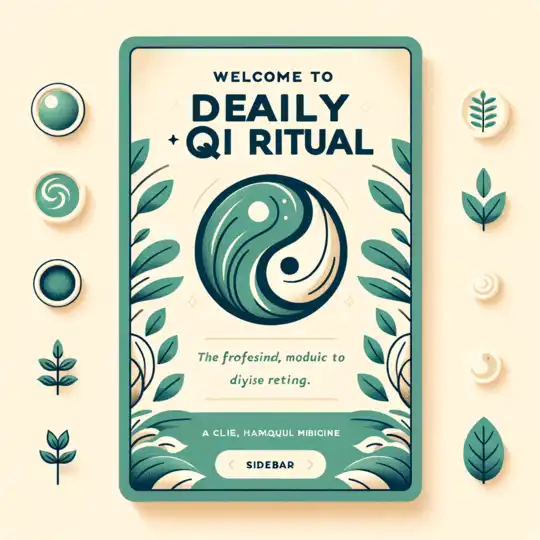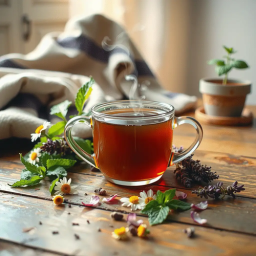In a world rife with stress and distractions, finding balance can feel like an uphill battle. Holistic health offers a comprehensive approach that encourages us to nurture our mind, body, and spirit together. This article delves into the transformative potential of holistic practices for stress relief and overall well-being.
Key Takeaways
- Holistic health integrates mind, body, and spirit, emphasizing their interconnectedness for comprehensive well-being.
- Key components include mindfulness, nutritional balance, physical activity, and emotional support, all of which contribute to a healthier life.
- Practices like meditation, herbal remedies, and gratitude journaling are effective tools for managing stress and enhancing emotional stability.
- Consistency in holistic habits is crucial; tools like habit trackers and personalized stress management plans can help maintain commitment.
- Incorporating self-care practices, such as morning rituals and evening reflections, fosters resilience and promotes a balanced lifestyle.
Impact of Holistic Practices on Well-being
Holistic practices significantly contribute to various aspects of our well-being, creating a balanced and healthy lifestyle. Below are the key impacts visually represented.
Enhanced Mental Clarity
Mindfulness and meditation can help clear the mind, making it easier to focus and think clearly.
Emotional Stability
Regular engagement in gratitude practices and stress-reduction techniques can improve our emotional responses.
Physical Health Improvement
Incorporating nutritious foods and exercise leads to better physical health, which supports our mental health.
Deeper Connection with Nature
Engaging in natural practices helps us feel more grounded and connected to our surroundings.
Understanding Holistic Health and Its Role in Stress Relief
When we think about health, it often feels like a puzzle with many pieces. Holistic health brings together different aspects of our well-being, recognizing that the mind, body, and spirit are interconnected. This approach is especially important in today's fast-paced world, where stress is a common challenge. By embracing holistic health practices, we can develop tools that not only help us manage stress but also enhance our overall quality of life. For a deeper understanding of how different holistic modalities contribute to well-being, consider exploring understanding acupuncture.
At Daily Qi Ritual, I see the beauty in Traditional Chinese Medicine (TCM) principles, which emphasize balance and harmony. This philosophy encourages us to look beyond symptoms and seek the root causes of our discomfort. Understanding how our emotional state affects our physical health, and vice versa, opens the door to truly comprehensive healing.
Defining Holistic Health in Contemporary Context
Holistic health is more than just avoiding illness; it’s about nurturing our entire being. This means paying attention to our physical health, emotional well-being, and spiritual growth. Today, as we navigate busy lives filled with stressors, taking a holistic approach can provide us with valuable insights and solutions.
Some key components of holistic health include:
- Mindfulness: Being present and aware of our thoughts and feelings.
- Nutritional balance: Eating foods that nourish our bodies.
- Physical activity: Engaging in movement that feels good and supports our health.
- Emotional support: Connecting with others and nurturing our relationships.
By integrating these elements into our daily lives, we set the stage for a healthier, more balanced existence.
The Mind-Body Connection: How Holistic Practices Alleviate Stress
The mind and body are intricately linked, and understanding this connection is essential for effective stress relief. When we experience stress, our bodies respond with physical reactions. This is where holistic practices come into play, helping us to calm both our minds and bodies.
Some holistic practices that can help alleviate stress include:
- Meditation: A simple yet powerful tool to center ourselves and reduce anxiety.
- Herbal remedies: Natural solutions such as chamomile or lavender can soothe the mind, and you can learn more about relaxing herbal teas for stress.
- Gentle movement: Activities like yoga or tai chi promote relaxation and mindfulness.
- Gratitude journaling: Shifting our focus from stress to appreciation can lighten our emotional load.
Each of these practices nurtures our Qi energy, allowing us to flow with life’s challenges rather than resist them. By embracing holistic health, we empower ourselves to manage stress in a more meaningful way.
Quick Summary
Here's a brief recap of the key points discussed so far:
- Holistic health integrates the mind, body, and spirit for overall well-being.
- Practices like mindfulness, nutrition, and gentle movement are essential for managing stress.
- The mind-body connection plays a critical role in stress relief through holistic practices.
Summarizing the Benefits of Holistic Health Habits for Stress Relief
As we reflect on the power of holistic health practices, it’s clear that they hold immense value in our journey towards balanced well-being. These methods don’t just tackle stress; they create a ripple effect, enhancing our overall health and happiness. By embracing holistic habits, we can cultivate a sense of inner peace and resilience that supports us through life's challenges.
Integrating holistic health into daily life brings numerous benefits, including improved mental clarity, emotional stability, and physical vitality. Through practices such as mindfulness, nutritious eating, and gentle physical activity, we can address stress on multiple levels. This comprehensive approach aligns perfectly with the philosophy at Daily Qi Ritual, where we advocate for the wisdom of Traditional Chinese Medicine in nurturing a harmonious existence. For more insights on integrating TCM, explore our article on incorporating Traditional Chinese Medicine into daily life.
The Comprehensive Impact of Holistic Practices on Overall Well-being
Holistic health practices offer a way to connect with ourselves, promoting a sense of balance and well-being. Here’s how these practices can positively impact our lives:
- Enhanced Mental Clarity: Mindfulness and meditation can help clear the mind, making it easier to focus and think clearly.
- Emotional Stability: Regular engagement in gratitude practices and stress-reduction techniques can improve our emotional responses.
- Physical Health Improvement: Incorporating nutritious foods and exercise leads to better physical health, which supports our mental health.
- Deeper Connection with Nature: Engaging in natural practices helps us feel more grounded and connected to our surroundings.
By adopting these habits, we not only address stress but also foster an environment where our Qi energy can flow freely, enhancing our overall well-being.
Encouraging Consistent Practice in Holistic Health
To truly reap the benefits of holistic health, consistency is key. It's about transforming these practices into lasting habits that fit seamlessly into our daily lives. At Daily Qi Ritual, we believe that even small changes can lead to significant improvements over time. How can we encourage ourselves to stick to these practices? Let's explore!
Interactive Elements: Habit Trackers and Stress Management Plans
One effective way to stay committed to holistic health habits is by utilizing tools that encourage engagement and reflection. Here are a few interactive elements to consider:
- Habit Trackers: Use a simple chart or app to track your daily practices, celebrating small victories along the way.
- Stress Management Plans: Create a personalized plan that includes your favorite mindfulness practices, nutritional habits, and exercise routines.
- Journaling: Write about your experiences and feelings during your holistic journey; it enhances self-awareness and motivation.
These tools can help you visualize your progress and keep you motivated as you integrate holistic practices into your everyday life.
Call to Action: Start Your Holistic Health Journey Today
Are you ready to embrace the transformative power of holistic health? I invite you to take that first step today! Whether it's starting with a warm cup of herbal tea, a moment of quiet reflection, or a few stretches, every small action counts. Let’s embark on this journey together, nurturing our minds and bodies through the principles of Traditional Chinese Medicine.
Incorporating Self-Care Practices into Daily Life
Self-care isn't just a luxury; it’s a vital part of maintaining our well-being. Here are some practical ways to weave self-care into your daily routine:
- Morning Rituals: Start your day with mindfulness to set a positive tone, perhaps by incorporating morning mindful rituals for focus.
- Midday Breaks: Take short breaks to breathe deeply or stretch, helping recharge your energy.
- Evening Reflection: Wind down by reflecting on your day, perhaps through journaling or practicing gratitude.
By incorporating these self-care practices, we create a nurturing environment for ourselves, paving the way for greater resilience and harmony in our lives. Together, at Daily Qi Ritual, let’s embrace the beauty of holistic health and make it a part of our daily lives!
Frequently Asked Questions About Holistic Health and Stress Relief
- What is holistic health?
- Holistic health is an approach to wellness that considers the entire person—mind, body, and spirit—and how they interact. It emphasizes balance and interconnectedness, aiming for overall well-being rather than just treating symptoms.
- How does holistic health alleviate stress?
- Holistic practices alleviate stress by addressing its multifaceted nature. Techniques like meditation calm the mind, nutritious eating supports physical resilience, and gentle movement releases tension. By nurturing all aspects of self, holistic health helps to reduce the physical and emotional impact of stress.
- What are some key components of holistic health?
- Key components include mindfulness, nutritional balance, regular physical activity, emotional support, and spiritual growth. These elements work together to foster a comprehensive state of well-being.
- Can holistic practices improve mental clarity and emotional stability?
- Yes, absolutely. Practices such as mindfulness, meditation, and gratitude journaling are known to enhance mental clarity, improve focus, and promote emotional regulation, leading to greater stability and resilience.
- Why is consistency important in holistic health?
- Consistency is crucial because the benefits of holistic practices accumulate over time. Regular engagement helps to retrain the mind and body, making these positive habits more ingrained and effective in managing stress and promoting long-term well-being.
Recap of Key Points
Here is a quick recap of the important points discussed in the article:
- Holistic Health Definition: Holistic health focuses on the interconnectedness of mind, body, and spirit, emphasizing overall well-being rather than just the absence of illness.
- Key Components: Important aspects include mindfulness, nutritional balance, physical activity, and emotional support, all of which contribute to a balanced lifestyle.
- Mind-Body Connection: Understanding the link between mental and physical health is crucial, as holistic practices can effectively alleviate stress through methods like meditation and gentle movement.
- Benefits of Holistic Practices: Engaging in holistic habits can enhance mental clarity, emotional stability, and physical health, while also fostering deeper connections with nature.
- Consistency is Key: To fully benefit from holistic health, it’s essential to incorporate practices consistently into daily life, utilizing tools like habit trackers and stress management plans.
- Self-Care Importance: Integrating self-care routines into daily life, such as morning rituals and evening reflections, is vital for maintaining well-being and resilience.









